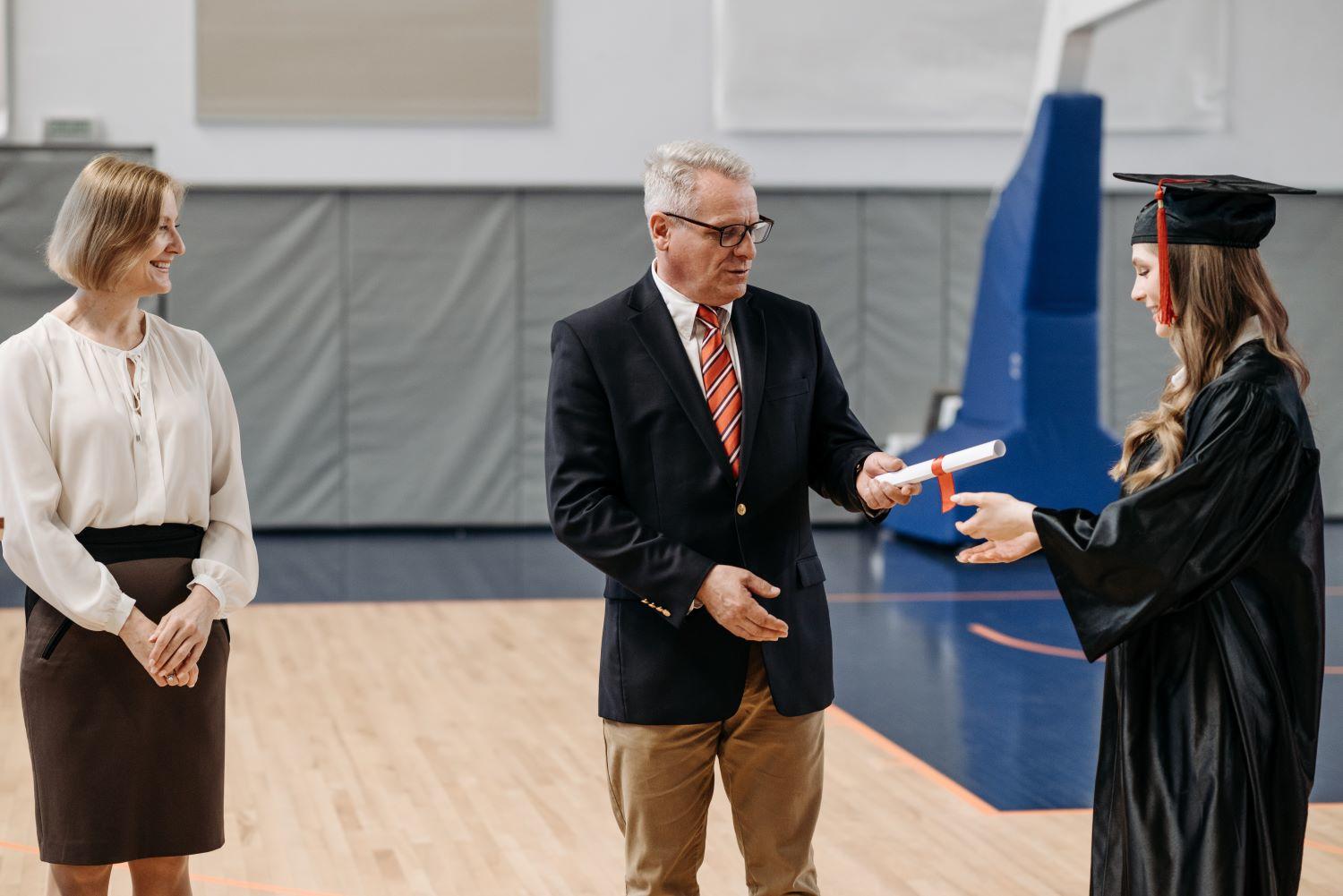Physics is a fundamental science that shapes our understanding of the natural world. It is the bedrock of technological advancement and scientific innovations, making it a subject of paramount importance. However, this lovely subject can be complicated for some students. Hence, the essence of physics tutors.
A physics tutor is essential in helping students grasp the complexity of the subject, guiding them through the intricacies, and fostering a love for scientific inquiry. The demand for physics tutors is rising as students seek additional support to excel in their studies.
This article will explore the qualifications needed to become a proficient physics tutor in Canada. Let’s delve into it right away.

Educational Requirements to Become a Physics Tutor
Becoming a physics tutor in Canada requires a solid educational background. This is because physics is a field that demands a deep understanding of its core principles and concepts of math, which can only be achieved through rigorous academic training. Below are the educational requirements an aspiring physics tutor should meet.
Bachelor’s Degree in Physics or Related Field
To become a physics tutor in Canada, you must possess a bachelor’s degree in physics or a related field. This degree serves as the cornerstone of your subject knowledge and understanding.

However, some tutoring positions may require a higher degree, especially for more specialized topics in physics tutoring. See how a degree could help you find tutoring clients easily.
Advanced Degrees
Pursuing an advanced degree, such as a master’s or PhD in physics, not only broadens your understanding of the subject but also opens doors to better tutoring opportunities. Although these advanced degrees are not usually mandatory, they can be advantageous in helping you cater to a broader range of students.
Transcripts and Academic Records
Your academic records can play a crucial role in showcasing your expertise. Maintaining a good GPA and having a record of relevant coursework demonstrates your commitment to the subject matter. Prospective employers or students seeking tutors may request access to your academic records.
Continued Learning
Education in the field of physics is an ongoing journey. Staying updated with the latest trends, developments, and research in the field is essential. You should attend workshops, seminars, and conferences, as well as engage in personal studies. This helps to keep you relevant in the industry.
Specialization
Depending on your target student, consider specializing in specific areas of physics. Potential students or m employers may require specific physics lessons. For instance, you may focus on astrophysics or classical mechanics. Specialization portrays you as an expert before your students, which makes you more attractive and desirable.
Certification and Licensing
Certification and licensing are significant aspects of becoming a physics tutor in Canada. They are essential because they not only validate your qualifications but also provide confidence to potential students and their parents.
While Canada doesn’t have a licensing system for private tutors, there are several ways to establish your credibility as a physics tutor.
Teaching Certifications
Although not mandatory for all physics tutors, obtaining teaching certifications can significantly enhance your credentials. For example, you may get a teaching certificate from a recognized organization or association. These certificates often include coursework on teaching methodologies, classroom management, etc., that are valuable for a tutor.

Background Check
Many tutoring services or platforms may require you to do a background check to ensure you don’t have any link to criminal activities. This is because platforms like Superprof want to be sure of the details and the profile of any tutor they offer to the public. Learn more!
This ensures the safety of their students. Having a clean background check can boost your trustworthiness as a tutor.
Membership in Tutoring Associations
Joining tutoring associations can help gain recognition and credibility. In Canada, organizations like the Canadian Tutoring Association (CTA) provide resources, professional development opportunities, and networking platforms for tutors. Membership in the tutoring association demonstrates your commitment to the field.
Subject-specific Certifications
Some physics tutors may opt for additional certifications specific to their subjects. For instance, if you specialize in preparing students for standardized physics exams, obtaining certifications related to those exams can be advantageous. This helps students to build more confidence in you.
Continual Professional Development
Engaging in ongoing professional development through workshops and courses can demonstrate your commitment to staying current in your field and refining your teaching skills.

Teaching Experience
Teaching experience is a cornerstone of effective physics tutoring in Canada. It entails the practical application of your knowledge and skills, allowing you to connect with students, understand their needs, and guide them through the subject matter. Let’s discover some of the Importance of teaching experience.
Practical Application of Knowledge
Teaching experience allows you to put your academic knowledge into practice. As a physics tutor, you will meet students with varying levels of understanding and different learning styles. Experience will teach you the best way to adapt your tutoring methods to cater to the specific needs of your students.
Understanding Student Challenge
Understanding student challenges is another advantage of getting teaching experience. Through tutoring, you learn the hurdles and difficulties students face when learning physics. This understanding is invaluable for adjusting your teaching approach, clarifying complex concepts, and offering necessary academic support.
Problem-Solving Skills
Physics often involves complex problem-solving. Through tutoring, you may encounter various physics problems, and working with students will help to sharpen your problem-solving skills
Building Trust
Experience helps in building trust and rapport with your students. This is your ability to create a positive and supportive learning environment that can significantly impact your students' progress.
Adapting to Different Levels
Tutoring allows you to work with students at different levels, from high school to college. This diversity of students challenges you to become adaptable in your tutoring styles and methodologies.
Feedback and Improvement
Tutors who are experienced know how important feedback is. This is because regular feedback from your students or employers help you to spot area where you will need to improve your tutoring services.
Building a Portfolio
Over time, your teaching experience becomes a portfolio that showcases your abilities. This portfolio can be helpful when applying for tutoring positions or establishing your own tutoring business. If you have a robust portfolio, you could charge high rates for your services.

Subject Knowledge
Subject Knowledge is the core of becoming a proficient physics tutor in Canada. Although it is not the only key to effective tutoring, it measures your expertise. You should possess a foundational knowledge of your subject as a tutor, which cannot be overstated. Here are some ways to do it.
Comprehensive Understanding
Physics is a complex and multifaceted subject. As a physics tutor, it is essential to understand better the subject, including classical mechanics, quantum mechanics, electromagnetism, thermodynamics, etc.
Mastering these topics and their subject matters equips you with the knowledge to break complex concepts to your students, thus ensuring an effective learning process.
Stay Updated
The field of physics is continually evolving with new theories and discoveries. Staying informed about the latest developments is crucial. This involves reading scientific journals, attending physics conferences, and following the work of prominent physicists. Being current in the field enhances your ability to teach relevant and cutting-edge information.
Adapt to Different Curricula
The curricula of physics can vary from one institution to another. However, whether you are teaching in a high school or college setting, you should be quick to adapt to different curriculum structures and requirements. It would be best if you also understood the specific topics and expectations outlined in the curriculum.
Specialization
While having a broad knowledge of physics is essential, specializing in specific areas increases your prospects and makes you a sought-after tutor. For instance, you might specialize in astrophysics, particle physics, or condensed matter physics. Specialization allows you to cater to students and their specific interests.
Practical Application
Linking theoretical concepts to real-world applications is a valuable skill. Demonstrating how physics is used in everyday life or various industries can make the subject more engaging and relatable to your students.
Communication Skills
Regarding the qualifications needed to become a physics tutor in Canada, the essence of communication skills cannot be overstated. Effective communication is a linchpin of successful physics tutoring anywhere.
The ability to convey complex ideas clearly and understandably fosters a positive learning environment. Effective communication can spike the interest of students who find learning physics complicated. The importance of communication skills is discussed below.
Clarity and Simplicity
Physics is known for its complex concepts and mathematical notations. Your role as a tutor is to disintegrate these complexities into more straightforward and understandable components. Use plain language and simple explanations to ensure your students can grasp the material.
Patience and Empathy
Students may struggle with physics. This is why you need to be patient and empathetic. Recognize that every student has a unique learning pace, and all should be carried along in the tutoring process. You have to support yourself and find motivation through challenges with empathy and understanding.
Active Listening
Active listening is an essential communication skill in every aspect of life. Please pay attention to their questions, concerns, and feedback. Active listening allows you to identify areas of weaknesses of your students and provide necessary support and guidance.
Wrapping Up
Becoming a physics tutor in Canada is a journey that demands a blend of qualifications, dedication, and a passion for teaching. As you embark on this rewarding career, remember that your subject is the greatest asset you will need in your teaching experience. Specialization and problem-solving skill sets you apart as an expert in the field.
You may also be interested in the different strategies for physics tutoring.
Summarize with AI:















